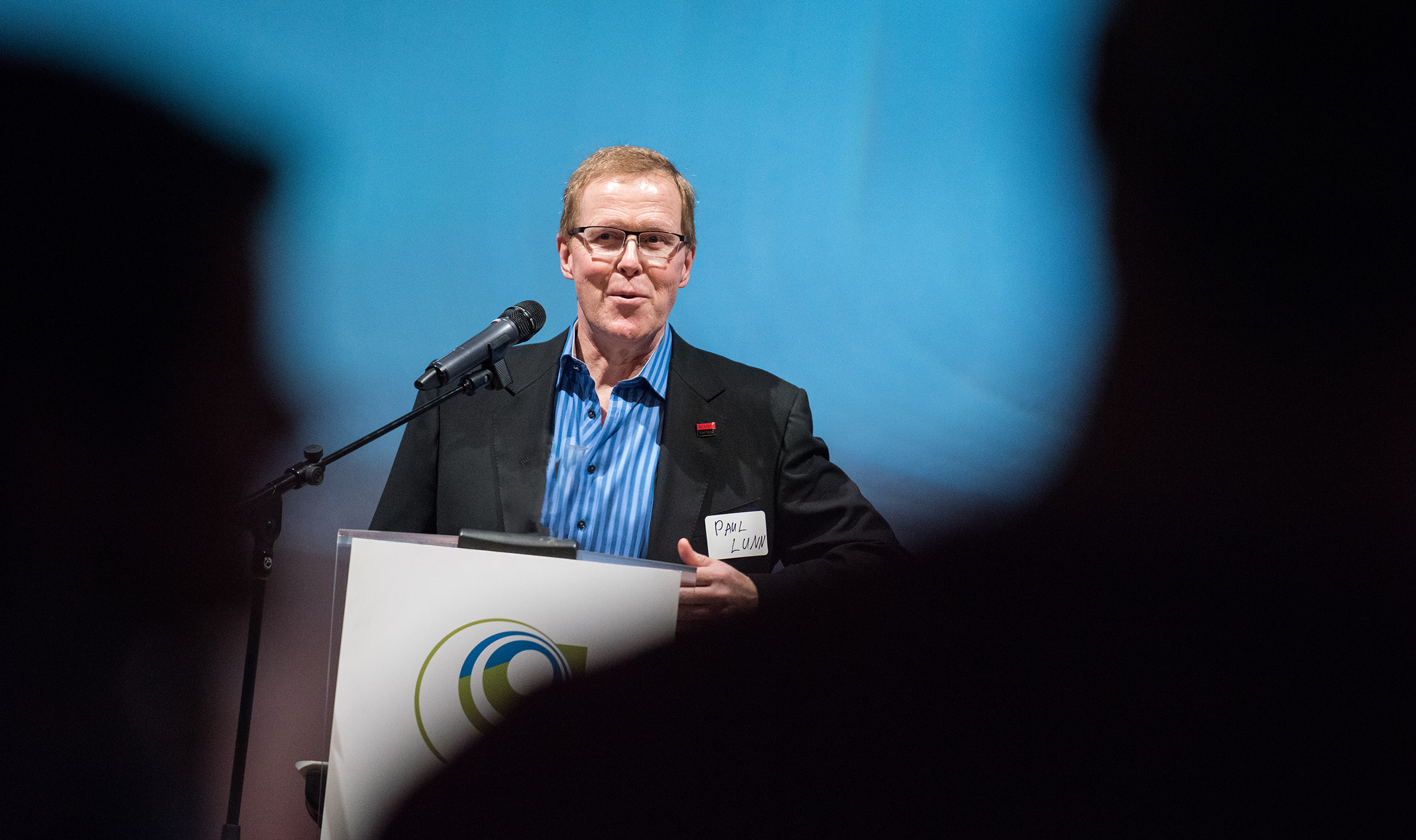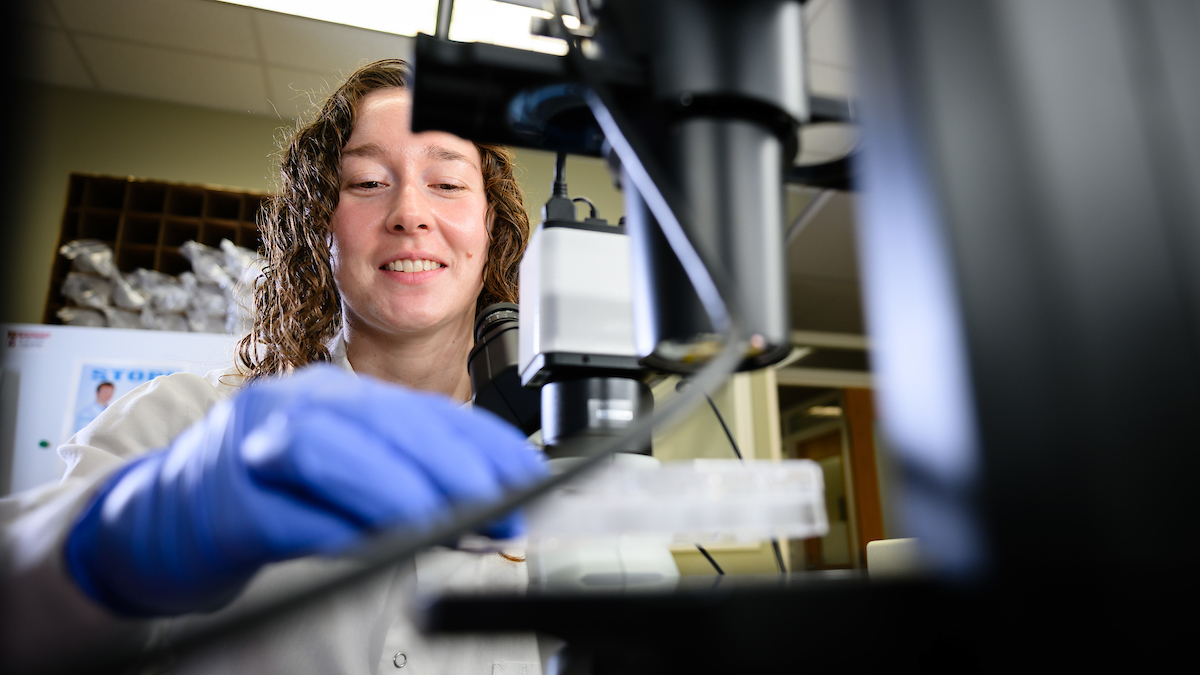New Opportunities for the New Year

I would like to wish everyone a very happy New Year and hope that 2016 is a great one for all of you. In the College of Veterinary Medicine, there is much to be excited about as we look forward. We have made some great progress on several new strategic collaborations to strengthen our research and teaching, and this year should have some particularly big opportunities for our equine and food animal programs.
Let’s take a look at what’s in store.
First, I want to highlight some expanding partnerships that are critical for the College. We have a long history of collaboration with the Duke Cancer Institute, but in 2015, we made a commitment to take this to another level. Working in partnership with Dr. Michael Kastan, the Director of the Duke Cancer Institute, we formed the Consortium for Canine Comparative Oncology, and we will hold our first Symposium at the North Carolina Biotechnology Center on January 22nd. In addition to many national leaders in comparative oncology research, we have over one hundred clinical research attendees drawn from Duke and NC State. At the meeting, we will announce a new grant program that will bring scientists together from these two great organizations. Second, we have had a series of meetings with the leaders of Gilling’s School of Public Health at UNC Chapel Hill, with the goal of growing our collaborations. We already partner on a Masters of Public Health degree with a veterinary epidemiology focus, and in the future, we’ll expand research collaborations like anti-microbial resistance and global health.
Closer to home, the third partnership I want to highlight is with the College of Agriculture and Life Sciences (CALS) at NC State. I am pleased to report that our two colleges have just signed an agreement to jointly develop our equine programs at the Reedy Creek Farm site in Raleigh. This is already the site of the CALS Equine Sciences program, and in the future, this will also be the home of the CVM Equine Reproduction service, and some of equine research. Working together, we’ll be able to make real progress in equine education and clinical care. More initiatives between CALS and the CVM can be found in research, where the two colleges are funding competitive research grants for investigator partnerships between the colleges. Last year, we funded three of these two-year projects, and we will announce a second set of three grants this month. As we look to the future many of the CVM’s best opportunities to impact animal agriculture, and global food security will come through our partnership with CALS.
This will be an auspicious year for the equine and food animal programs at the CVM. Not only do we have the new programs in partnership with CALS, but we have just completed a major planning process to update and expand our clinical facilities. The Equine and Farm Animal Veterinary Center’s original design has changed little from its construction in 1983, and it needs updating to fully serve the equine and food animal community of North Carolina and beyond. Highlights of this renovation and expansion project include the additions of an equine sports medicine and rehabilitation center, a new field services and food animal production unit, new animal holding stalls, a purpose-built equine ICU and cutting edge surgery and anesthesiology suites. We will also be relocating entrances and altering the building’s inpatient and outpatient movement flow to dramatically improve patient care and access to our facilities. In addition, in the field of Equine Sports Medicine, we will be able to announce a major gift in the next few weeks that will have a huge impact on this important aspect of equine science and clinical care.
During this past year, we saw a number of new research accomplishments by our faculty that will make real impacts for animal and human health. I want to highlight a new award for Dr. Kate Meurs, our Associate Dean of Research and Graduate Studies, who is the first recipient of the Mark L. Morris Jr. Investigator Award, an honor designed to support research in a designated area of animal health. This year’s topic was canine mitral valve disease, the most common cause of canine heart disease. This is a major award and will help Dr. Meurs and her team identify the underlying cause of this common and serious disease.
Several of our new faculty researchers are also leading innovative discovery initiatives. Dr. Cristina Lanzas, Associate Professor of Infectious Disease in the Department of Population Health and Pathobiology, has been recognized with a National Science Foundation Ecology and Evolution of Infectious Diseases Award for expanding how organisms transmit diseases. In the Department of Molecular and Biomedical Sciences Dr. Seth Faith, Associate Professor of Forensics, was awarded a grant by the National Institute of Justice for his ongoing development of a genetic information database accessible to forensic laboratories and the entire criminal justice community that will change the way we investigate crime. These and other accomplishments by members of the CVM research team are innovations that have an impact across a wide spectrum of animal, human and environmental health.
Let me close with some words about our students. We now have a very different class, as all four years of our DVM program now have 100 students. We’ve also seen changes to the make up of the class, with much greater diversity reflecting progress towards our goal of inclusivity. Curricular change continues to be rolled out across the four years of the program, with new experiential communication labs going into action for the first time for all students this Spring, and a new simulation laboratory in use for the first time. We know that our graduates are increasingly making up a significant proportion of North Carolina’s veterinary workforce, so we are seeing a real impact across our state and beyond.
Thanks for all you do for the college and have a great 2016!
All the best,
D. Paul Lunn, BVSc, MS, PhD MRCVS, Dip. ACVIM
Dean, College of Veterinary Medicine


